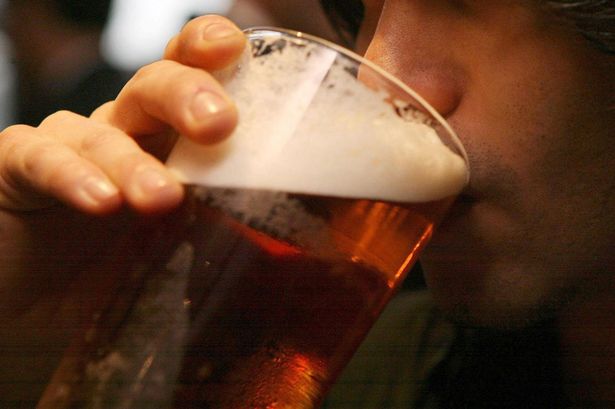Have you ever wondered what kind of impact doing Dry January would have on your body?
For many people, the challenge is a chance to cut down on booze after the festive period, which usually involves more alcohol than we'd normally have, but for others is can be a way to reassess the role that drinking plays in your life. Cutting alcohol out can also have a physical impact on your body and health.
Everything from your sleep cycle to your mood is impacted by alcohol, and cutting it out, even for a short period of time, can improve them all.
READ MORE: What is the 50, 30 and 20 budget rule on TikTok?
Here's all the ways Dry January impacts your body:
1. Your mood may stabilise
Alcohol is a depressive, even if you're only drinking small amounts. If you regularly consume alcohol it can decrease the levels of serotonin in your brain, the hormone that makes you happy.
Without drinks in your system, your feelings of low and high might stabilise over the course of January.
2. Your REM sleep and memory will improve
Drinking alcohol disrupts your REM cycle, the Rapid Eye Movement phase of sleep which is when your brain does important work like repairing tissue, building muscle, and developing your brain power, including improving memory retention. Without REM sleep, our cognitive functions and memory are impaired.
3. Your neurotransmitter levels will change
Neurotransmitters are the substances neurons use to communicate and activate different neural pathways. Alcohol increases the production of dopamine, a neurotransmitter responsible for pleasure, and GABA, a neurotransmitter that causes relaxation and a sense of calm. It also decreases the production of other neurotransmitters.
The morning after drinking, your production of these drops, leaving you in a low mood. No matter your previous relationship to alcohol, your neurotransmitter levels have still likely been affected over time by your drinking.
4. You might experience a rise in stress neurotransmitters
If you're a serious social drinker, you may find Dry January a stressful experience. Part of the reason for that is neurological.
Corticotropin-releasing factor (FRC) and dynorphin, stress neurotransmitters, are released when you stop drinking alcohol, causing you to feel more stress.
5. Your desire to drink alcohol could change
A 2018 study which looked at 800 participants in Dry January, found that for the great majority of them, a month without alcohol reshaped their relationship with drinking entirely. More than 75% said they'd learned about their motivations for drinking, and 80% said they felt more in control of it.
When they were re-interviewed in August 2018, average drinking days had fallen from 4.3 to 3.3 per week, and the frequency of being drunk had dropped from 3.4 days per month to 2.1 days. The participants also drank less overall six months afterwards, drinking 7.1 units on average on their drinking days, down from 8.6 units.
Neurologically, this implies that the brain's reward centre — which spikes when given pleasurable things, and drives us to crave them — had been reconfigured by Dry January, or was better understood by the people abstaining. If you come out of Dry January simply not wanting alcohol as much as you did, it's because the reward circuitry of your brain has shifted.
Discover, learn, grow. We are Curiously. Follow us on TikTok, Instagram, Facebook and Twitter.
READ NEXT:
- Nine Merseyside restaurants offering huge discounts this month
- Matalan shoppers 'absolutely love' £26 coat that's 'warm and cosy'
- 12 items sitting in your home that could be worth hundreds on eBay
- John Lewis shoppers praise 'gorgeous' £29 dress that's 'good quality'

